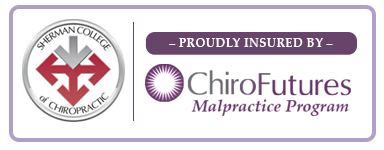Free Chicken Dinners, Inducements, Chiropractic & the Law

Since I am in the business of risk management, liability, malpractice etc I try and expose myself to as much of what is going on in the chiropractic marketplace as possible. As a result I see all sorts of things every day that bring risk into a chiropractors world. I see it in newspaper advertisements, Facebook posts, Twitter feeds etc.
One of the things that chiropractors like to do is give discounts, incentives or as the law enforcement folks refer to them "inducements" in order to encourage people to try chiropractic. The idea is that if you can just get them in the door you can allay all their fears and convert them into a chiropractic patient.
Actually I don't think chiropractors actually like offering discounts, free exams, free adjustments, chicken dinners etc. I just think somebody told them at some point it was a good idea and/or they see everyone else doing it so feel they must do it in order to compete.
If you are offering inducements or are thinking of offering them please make sure you review your state laws and rules for any language that addresses this. Some states allow these incentives but require specific language that must be in the ad. You do not want to run afoul of this.
Also, make sure you know the rules when it comes to Federal programs like Medicare which is very strict when it comes to offering stuff for free.
There was a recent case that serves as an example. A chiropractor was charged with violating the False Claims Act by improperly billing Medicare and Medicaid for chiropractic adjustments after providing free electrical stimulation to beneficiaries to influence those beneficiaries to receive chiropractic adjustments from her. The government alleged that this conduct violated the Anti-Kickback Statute and, in turn, the False Claims Act.
The Anti-Kickback Statute’s purpose, in part, is to protect patients and federal healthcare programs from fraud and abuse by limiting the influence of money or improper incentives on healthcare decisions. It is intended to ensure, among other things, that improper financial incentives do not compromise providers’ medical judgments and that inappropriate considerations do not cloud beneficiaries’ decisions when determining which providers to utilize and which services to obtain.
False Claims Act cases also arise under the qui tam or whistleblower provisions of the Act, which permit a private party with knowledge of false claims to bring suit on behalf of the United States and then share in any recovery. So if you are doing these kinds of things and your staff, employees, associates or patients decide you are their next meal ticket they could use the False Claims Act against you.
As always I look forward to your feedback, questions and concerns.
Contact Information
Matthew McCoy DC, MPH
drmccoy@chirofutures.org
https://www.chirofutures.org
800.219.9090
Blogs
- The Chiropractic Cartel: A Look Back at Bias in Accreditation and its Imact on Today's Profession
- Inside Montana's Chiropractic Monopoly: ACA & MCA's Brazen Board Takeover
- Concerns Grow About Control of the NY State Chiropractic Board by the ACA - Use of X-ray in NY Under Threat
- Reproductive Health Information and Chiropractic Care: Navigating New Privacy Regulations
- Navigating Substance Use Disorder (SUD) Consent: What Chiropractors Need to Know














